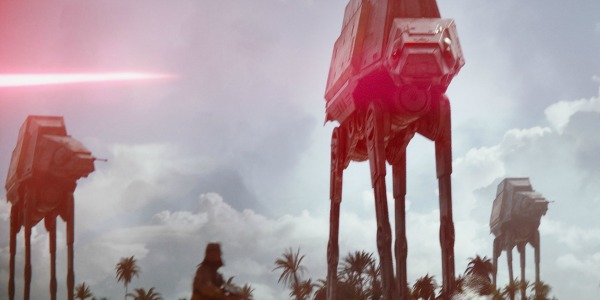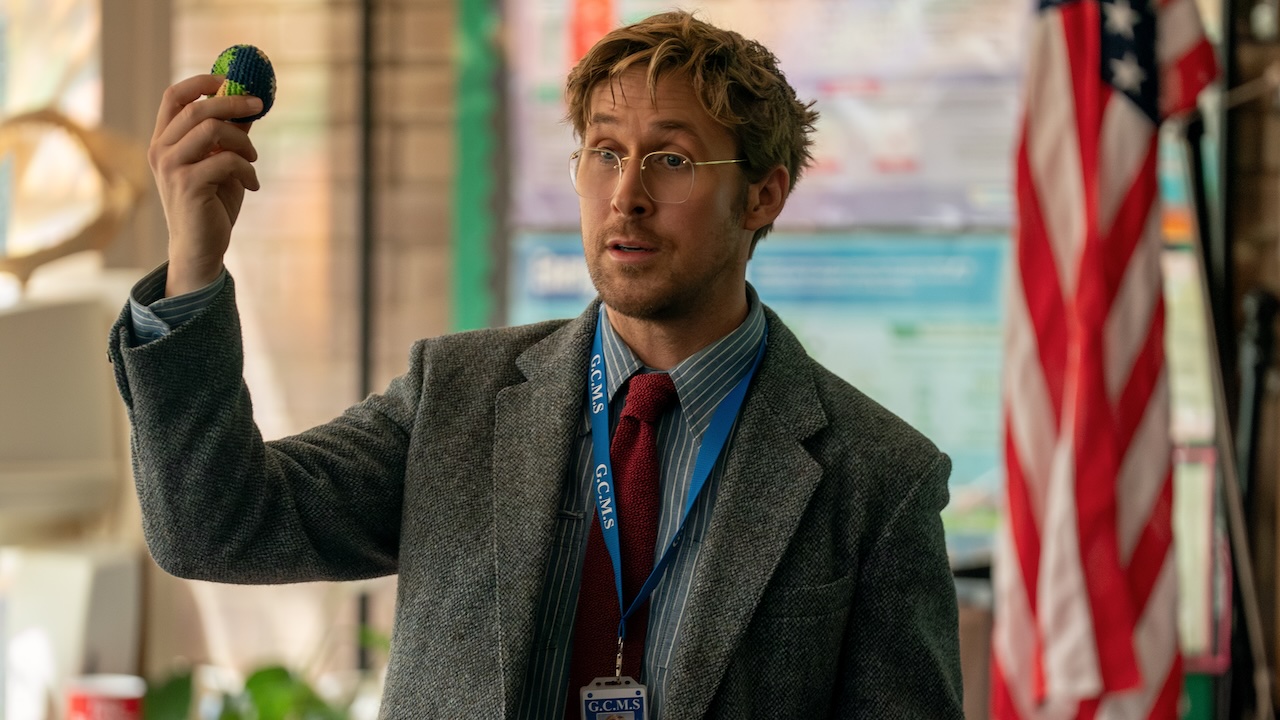Why Star Wars Puts Other Movie Universes To Shame

Your Daily Blend of Entertainment News
You are now subscribed
Your newsletter sign-up was successful
WARNING: The first line of this article contains SPOILERS for Rogue One: A Star Wars Story. So if you have not seen it, sell your kidney, mother or both to get a ticket, because it's very bloody special. Also please don't read ahead. Check this out instead.
Forget about Princess Leia. Forget about the Death Star. Forget about Darth Vader slicing through the Rebels with a fire and fury that was only matched by our glee at seeing him do so in such a precise and poetic fashion. Let's instead look to the future. A future that no longer relies on the Skywalker saga. The future that Rogue One has now paved for the series.
Disney was always insistent that Rogue One was a gamble, and while in the immediacy we can all revel in just how gloriously entertaining its spectacle was, its triumph as both a film and, already from the looks of things, at the box office means that the risk is going to open up a myriad of opportunities for where the franchise can turn.

Rogue One still repeatedly nods its head to the past, though. The hope and purism of the originals is present, but it's just more nuanced and complex this time around, especially when it comes to Cassian Andor (Diego Luna), a Rebel officer who starts to question what he's done for them. At the same time, the word 'hope' constantly echoes around Rogue One, to the point that it's the final word of the film, allowing it to perfectly slot in and become the precursor to Star Wars IV: A New Hope.
But while Star Wars is enhanced because of its cameos, it's never reliant on them. Rogue One thrives because it's a bona-fide war film that's set in the Star Wars universe. Much more so than when other franchises insist that they're making a blockbuster-cum-political thriller, but in the end it just has the same dreary aesthetic, style and look as the rest of its catalogue. With Rogue One, it's like we're getting a glimpse at their version of the Battle Of The Somme or Leningrad or Dunkirk, and like every great war film, there's an overarching feeling that those involved are crawling an inch to start a mile that they won't get to finish.
At the same time, both J.J. Abrams and now Gareth Edwards (And Tony Gilroy, too, if you believe the rumors regarding his vast involvement in Rogue One) have had a ball within the Star Wars playpen, which they did so with a reverence and intent on entertainment that is palpable. Ahead of them there's a group of filmmakers that have clearly been inspired by the universe, too. And they have the chance to either go back and forth or from side to side, as there is still so much story left to cover over different galaxies, worlds, wars, battles and time.
Audiences of all ages are just as eager to see what they produce and how the story grows. An unfathomable amount of people are deeply invested in the Star Wars tome, and the series is drenched in a nostalgia that they're pining to drink up. Especially since it has crossed so many generations and has even tied together families.
Your Daily Blend of Entertainment News
Because of the possibilities ahead, George Lucas' nifty idea to start off the franchise slap bang in the middle with 1977's Star Wars: A New Hope now seems like a masterstroke. A hugely lucrative masterstroke. The Marvel and DC Cinematic Universes have to mix an origin story when introducing whatever hero they're focusing on that week who is saving planet Earth or a city from a malevolent villain hell-bent on mass destruction. Plus, because they're able to overcome their foes because of the superior strength and ability that has been given to them, there's a severe lack of cunning, guile or tension. After 14 Marvel films, 9 X-Men films, and 4 DC Films, it's become white noise and hard to relate. Still enjoyable, just without the impact. Star Wars gets under your skin, while Rogue One's last 40 minutes was so grittily enthralling that it managed to get under your finger nails, too.
When it was announced, it was hard not to be skeptical about the fact that Rogue One evolved from a single line in the opening crawl for A New Hope. But the richness of the Star Wars canon, which is down to the depth of George Lucas' original ideas and creation, as well as the fans' response that allowed it to evolve beyond control, means that not only did it slot in perfectly, but now the possibilities are endless.

